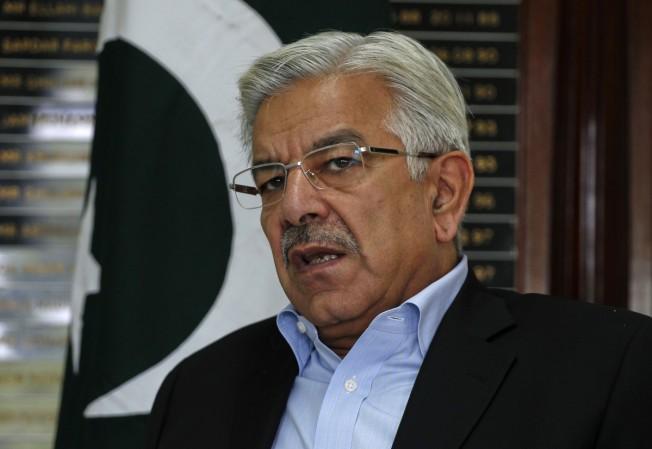
Days after the Union Government announced the suspension of the Indus Waters Treaty following the gruesome Pahalgam terror attack, Pakistan on Saturday warned that it would attack India if any structure is built to divert water.
Pakistan's Defence Minister Khawaja Asif stated that his country would not hesitate to attack India if any attempt is made to block or divert water.
"Absolutely, there is no doubt — we will not waste even a minute to attack India if any structure is built to stop water from flowing to Pakistan," Khawaja Asif said.
In an interview with a domestic news channel, Asif warned that any diversion of Pakistan's share of water would be viewed as an act of aggression.
![Complete J&K's hydropower projects; Indus Water Treaty task force reviews progress [details] Complete J&K's hydropower projects; Indus Water Treaty task force reviews progress [details]](https://data1.ibtimes.co.in/en/full/785497/complete-jks-hydropower-projects-indus-water-treaty-task-force-reviews-progress-details.jpg?w=659&h=449&l=50&t=40)
When asked about Pakistan's potential reaction if India were to construct dams on the Indus basin, he said, "Constructing any structure to stop water will be considered aggression against Pakistan. Even if India makes an architectural attempt of this kind, Pakistan will waste no time in destroying that structure."
He further emphasized that aggression is not limited to weapons and warfare. "Aggression has many faces. One of them is blocking or diverting water, which could lead to deaths from hunger and thirst," Asif added.
However, Khawaja Asif said that, for now, Pakistan would explore all diplomatic and legal channels, starting with the mechanisms available under the Indus Waters Treaty. "We are approaching the forums that are available to us, starting with the Indus Waters Treaty (IWT). We will pursue this matter," he said.
![[Representational Image] According to the Indus Water Treaty, India has full rights on the eastern rivers — Sutlej, Beas and Ravi — and must allow unrestricted flow of water of the western rivers — Indus, Chenab and Jhelum — to Pakistan. Picture: Indus river](https://data1.ibtimes.co.in/en/full/629827/indus-river.jpg?h=450&l=50&t=40)
India Suspends IWT After Pahalgam Terror Attack
Following the Pahalgam terror attack, the Cabinet Committee on Security (CCS) — the country's highest decision-making body on national security — has taken stringent and punitive measures against Pakistan.
India has decided to suspend the decades-old Indus Waters Treaty with Pakistan indefinitely. As a result, the flow of water from the Indus River and its tributaries — the Jhelum and Chenab — may be diverted or stopped. These rivers are the primary sources of water for Pakistan, affecting tens of millions of people in the country.
The Indus Waters Treaty was signed on September 19, 1960, between India and Pakistan, with the World Bank acting as a broker. The agreement had withstood three wars between the two countries — in 1965, 1971, and 1999 — but has now been suspended indefinitely.
Under the 1960 treaty, which governs six common rivers, India has full rights over the waters of the Ravi, Beas, and Sutlej, while Pakistan holds the rights over the Indus, Jhelum, and Chenab.
The Indus Waters Treaty has been one of the rare long-standing agreements between India and Pakistan and is often cited as the most successful example of cooperation between the two nuclear-armed neighbours.
In 2019, after the Pulwama terror attack targeting paramilitary personnel, Prime Minister Narendra Modi reportedly told the Cabinet Committee on Security that "blood and water can't flow together." However, the government chose not to act on it at the time.
More recently, Union Jal Shakti Minister C.R. Patil stated that India would ensure not even a drop of water from the Indus flows to Pakistan.








